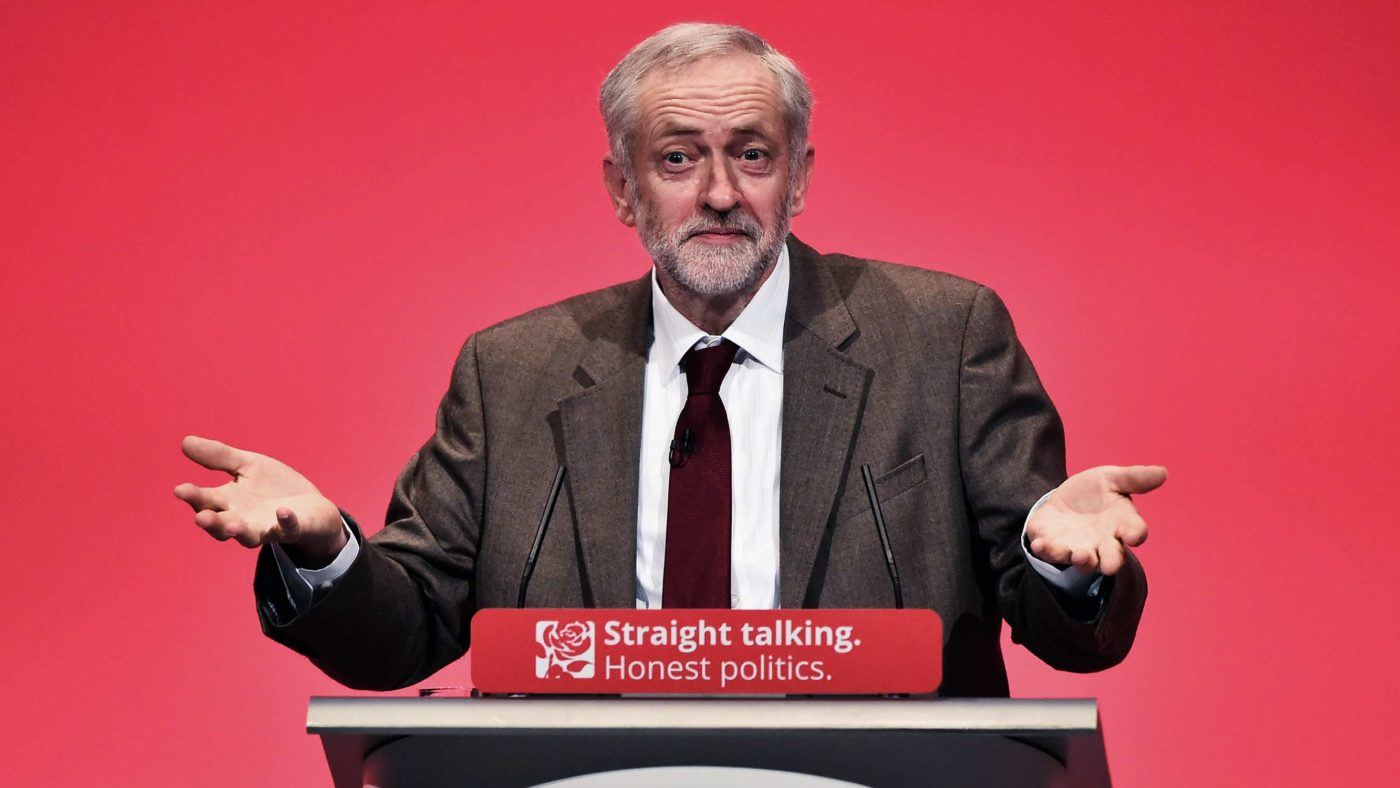Here’s a simple question for Labour MPs: do you want your party to be smashed?
There are, of course, some who would answer that with a yes. Some Corbynites clearly think that the only way to purge the party of their internal opponents is to have them vanquished in an election, leaving a rump PLP of “core group plus”, free of the “core group negative” and “core group hostile” members. And on the other side, some moderate MPs believe that the only way to return Labour to sanity is for the Corbynites to suffer the full electoral wipeout that is on the cards.
But most MPs would surely prefer the party’s defeat to be as painless as possible. Yet with Jeremy Corbyn as leader, that’s not going to happen. Every passing day of the campaign exposes new depths to Labour’s unelectability.
Without sounding too pious, democracy needs a serious opposition. So it would be politics that would benefit, not just the careers of Labour MPs, if there was a way to minimise the damage.
And it turns out that there is.
If Labour MPs – and the party’s union paymasters – developed some cojones, they could learn from their Australian sister party, which has twice dumped a leader on the verge of an election in order to avoid certain defeat.
In 1983, Australian Labor was in disarray under its then leader, Bill Hayden. The previous December it had lost a vital by-election to Malcolm Fraser’s governing Liberal party. Reading the runes from the polls, Fraser called a snap election for March 5.
Spot the parallels? A government by-election win. A snap election called to capitalise on a Labor Party with a useless leader. No hope for Labor on the verge of polling day.
But here’s where the parallels end. On February 3, a group of senior Labor MPs told Hayden that he had to go. Hayden was a decent man and realised the game was up. (Fraser had called the election on the same day, unaware that Labor was already in the process of ditching its leader.)
Five days later, Labor MPs elected Bob Hawke unopposed. After being Leader of the Opposition for less than a month, he won Labor’s biggest victory for four decades.
Then, 27 years later, Labor did it again. In 2010, the Australian Labor Party was heading for defeat. Every poll showed it was going to be booted out of government under Kevin Rudd. On June 23, deputy leader Julia Gillard launched a coup that removed Rudd the very next day.
Just three weeks after taking office, Gillard called an election – and Labor astonished everyone by holding on to power.
In other words, it really isn’t too late for Labour in the UK. We have seven weeks before polling day – plenty of time for a new leader to shore up the party and put up a semblance of a fight.
And it’s not just the benefits of changing leader that Labour MPs should think about: the party’s history shows what happens when they don’t act. If MPs had had the courage to act against Gordon Brown in 2009, or even in 2010, Labour might have held on. Don’t forget that David Cameron didn’t win the 2010 election. Despite the mess, Labour still had a mathematical chance of a coalition.
And if the party had removed the useless Michael Foot in the run-up to the 1983 election, it might have avoided its worst post-war performance, when it managed just 209 seats and 27.6 per cent.
Labour has removed one leader on the eve of an election. In October 1935, George Lansbury lost a conference resolution over Italy’s invasion of Abyssinia and realised he had to resign. Lansbury opposed sanctions; after Ernie Bevin accused him of “hawking your conscience round from body to body asking to be told what to do with it”, conference voted to support them. The next month, Labour was led into the general election by Attlee.
There is a big difference, of course, between Hayden, Lansbury and Corbyn. The first two were decent men who put their party first. Corbyn puts hard Left control of Labour first, which is why he is still in office.
So the onus is on Labour MPs and union figures to pull the plug. Labour MPs need to say enough is enough, and key union figures like Dave Prentis of Unison need to say the same.
If Labour is to have a chance of avoiding cataclysm, by anointing a new leader, they have to act now. That means the NEC demanding Corbyn goes, too – and then instituting a two-day contest in which whichever MPs decide to stand are voted on by their fellow MPs and then endorsed as leader by the NEC.
This is not about party politics, or saving political careers. If voters want rid of Labour MPs, so be it. Rather, it’s about what is right for Britain. Good governance and democracy itself require that voters have a choice between at least two serious parties, and we do not have that.
The fault for that lies with Jeremy Corbyn for refusing to accept reality. But unless Labour MPs and the unions take action, they will be complicit in an election that is no more than a coronation.


